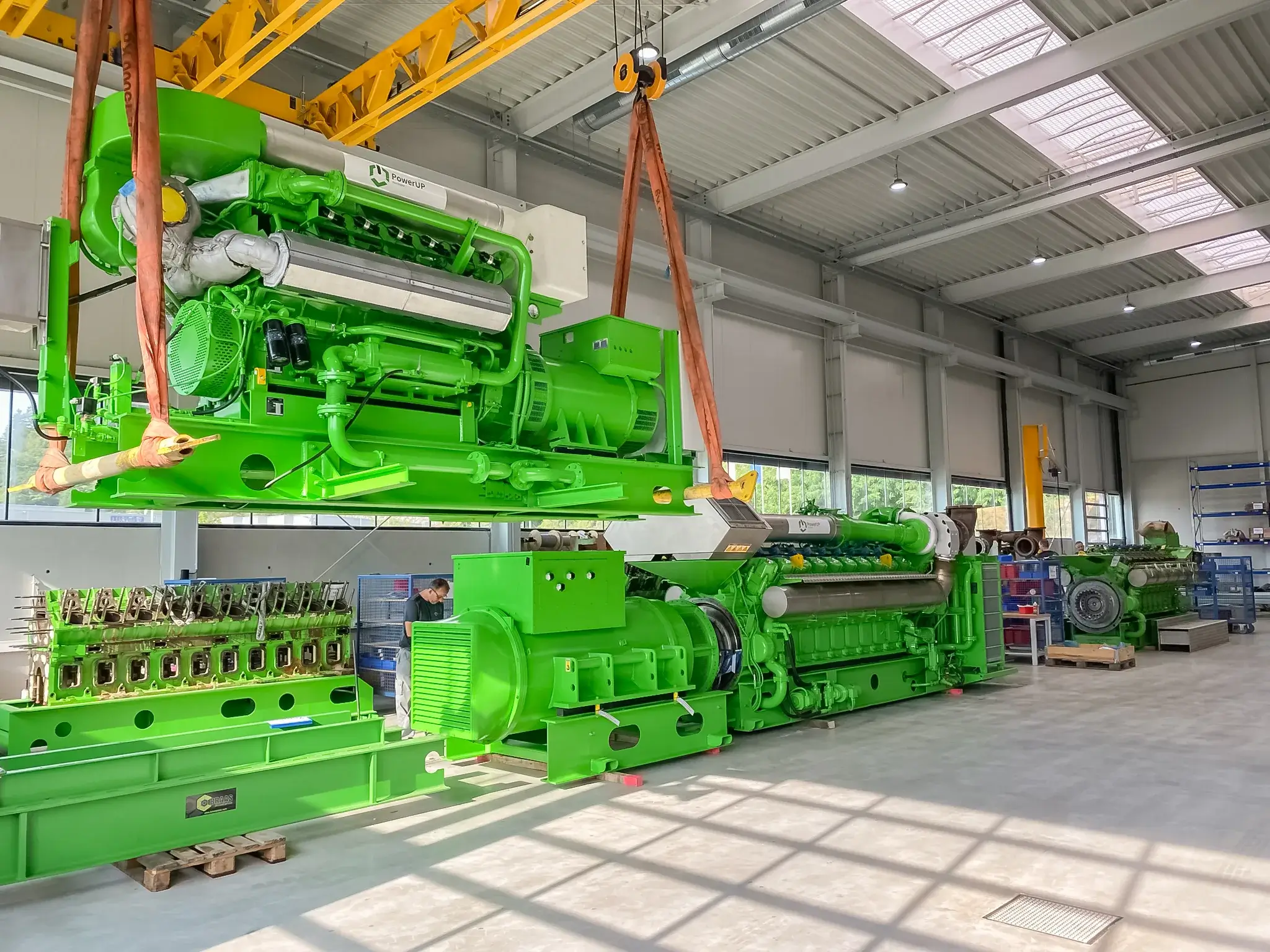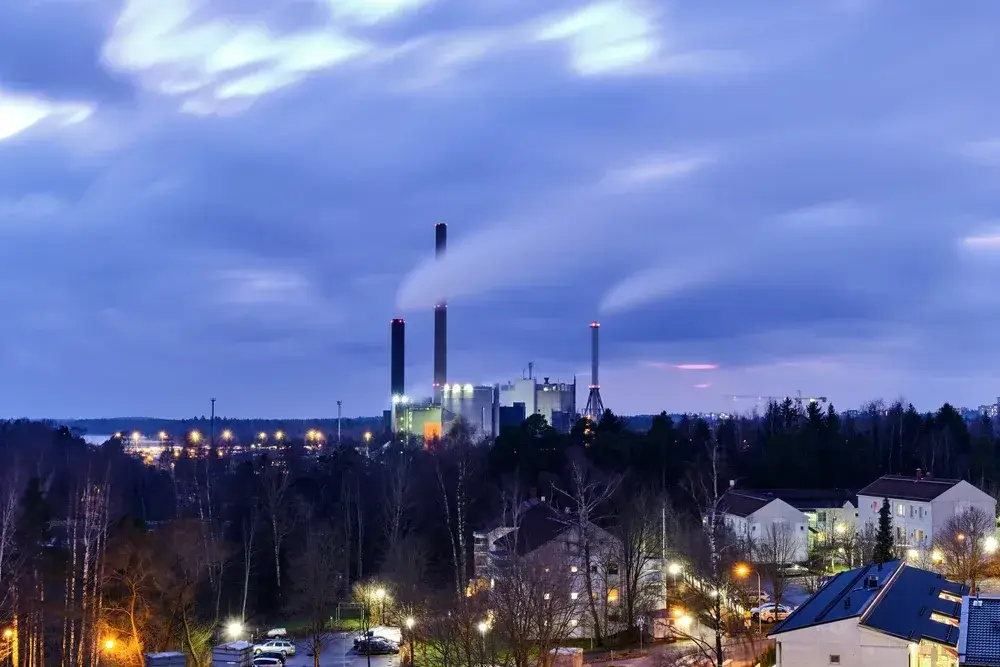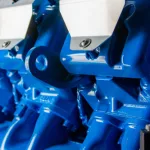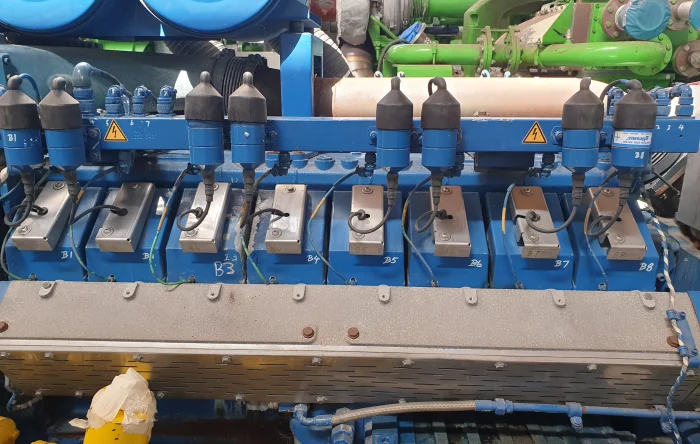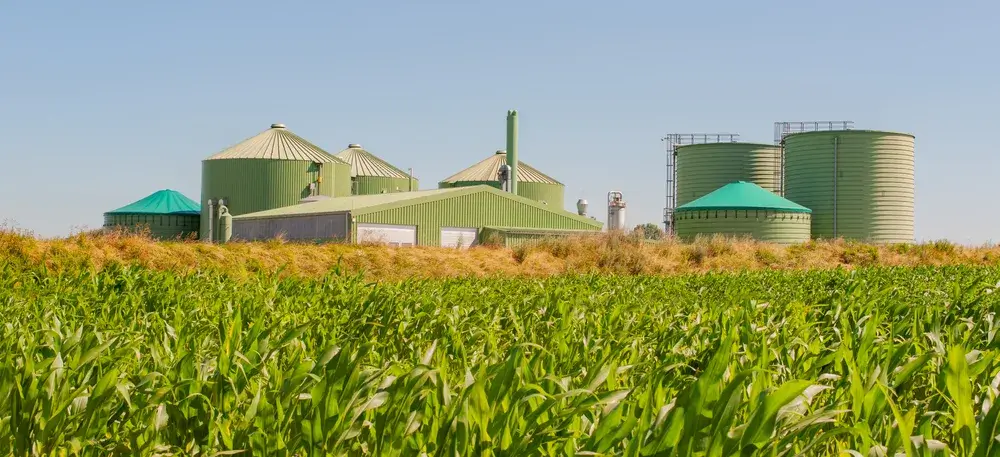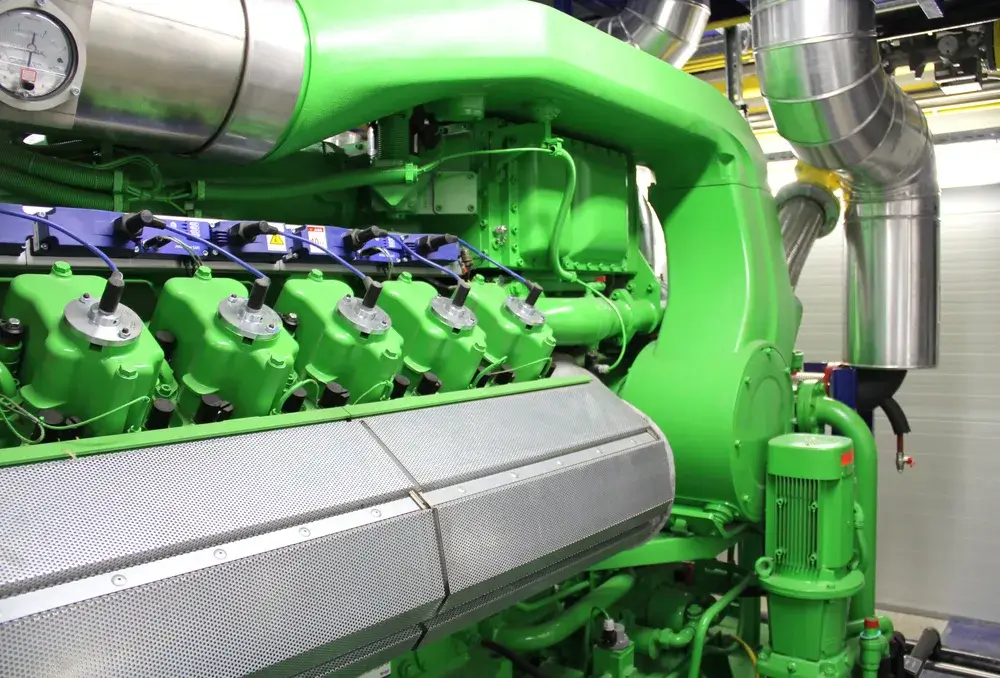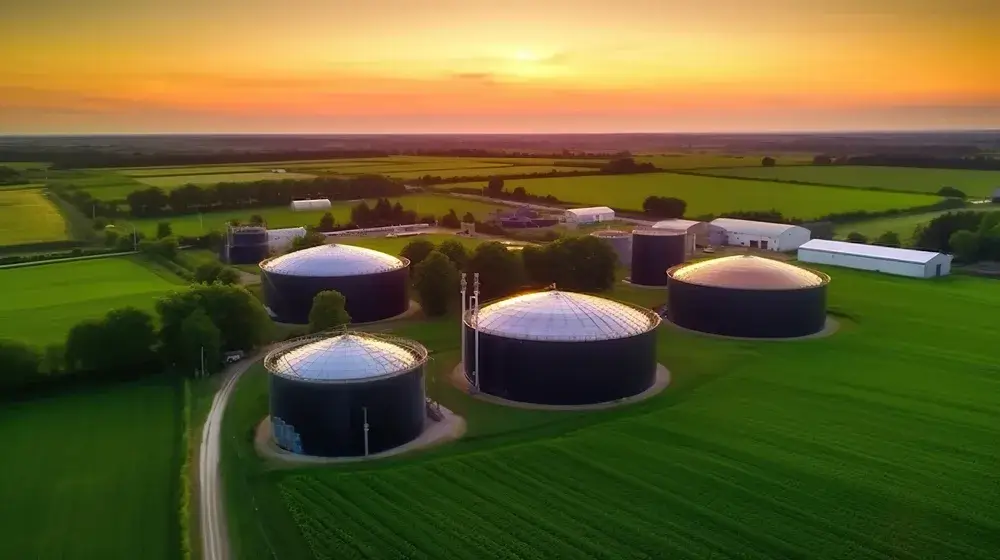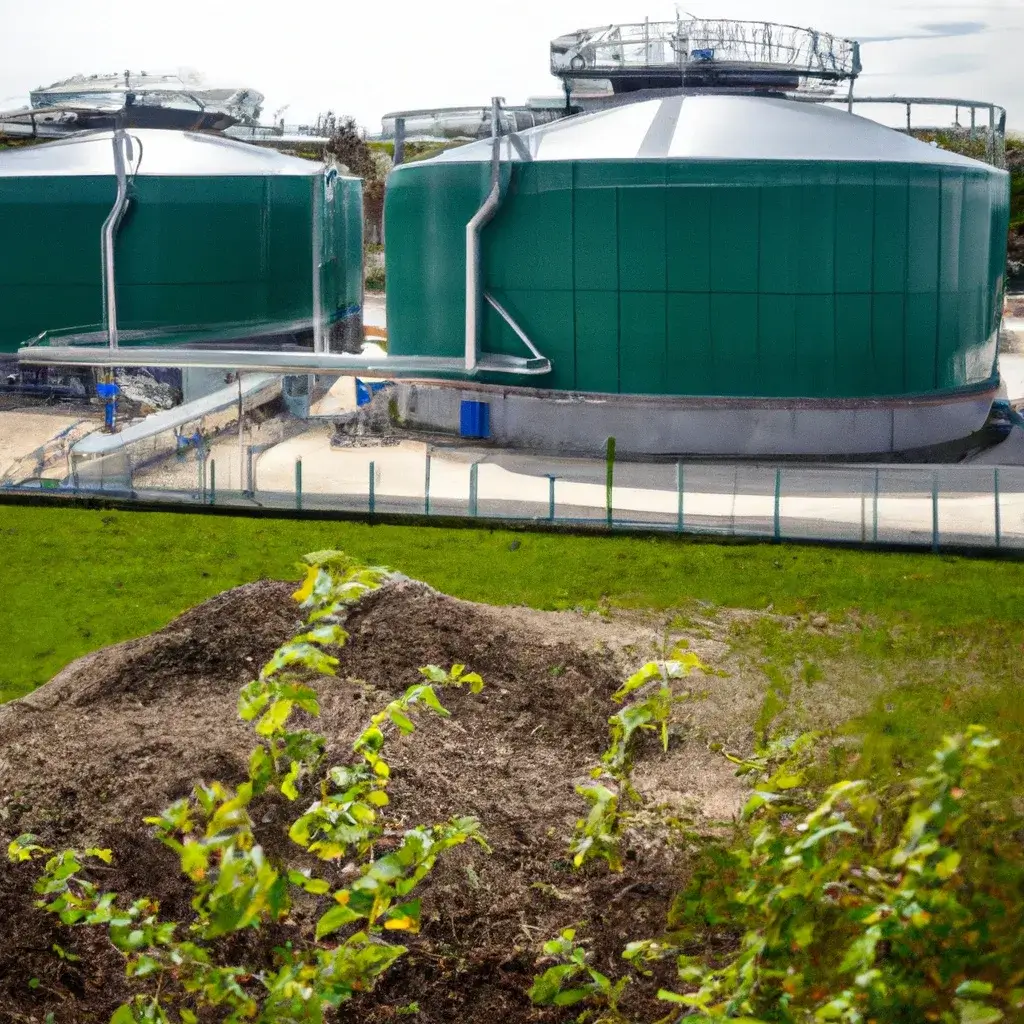The construction of energy plants with gas engine drive
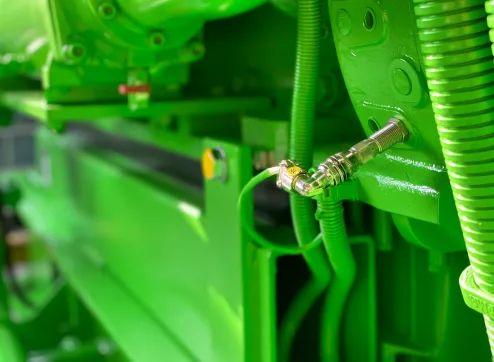
In a world seeking more sustainable energy sources, gas engines play a crucial role. These systems are highly versatile and find application in various sectors, from power generation to heat supply.
This article will guide you through the construction of energy plants with gas engine drive and shed light on the many aspects associated with them.
Introduction to Gas Engine Drive
Gas engine drives are an efficient way to generate energy from gaseous fuels. They serve as an alternative to conventional combustion engines that run on gasoline or diesel.
The gas engine converts the chemical energy of the gas into mechanical energy, which is then used for power generation or other applications.
The significance of energy plants
Energy systems are crucial for providing the energy needs of our society. They ensure a continuous supply of electricity for our homes, businesses, and industries. Gas engine systems play an integral role in this supply network and offer a reliable and efficient means of energy generation.
The construction of an energy system with gas engine drive
The construction of a gas engine plant includes several key components that collaborate to generate energy.
Gas engine
The gas engine stands as the core of the energy system, tasked with transforming the chemical energy contained in gas into mechanical energy. This conversion is achieved through combustion processes where the gas, acting as fuel, is ignited within the engine’s chambers. The resulting expansion of gases drives the engine’s pistons, thus creating mechanical energy. For optimal performance, the engine must be meticulously maintained and operated within specified parameters.
Gas engines – a comprehensive insight
If you want to know how a gas generator works, where they are used and how to get the most out of them, then you have come to the right place!
Generator
Closely linked to the gas engine is the generator, a crucial device that converts the mechanical energy produced by the engine into electrical energy. This process involves the rotation of a conductor within a magnetic field to generate an electrical current. The efficiency of this conversion is essential for the overall output of the gas engine plant.
Cooling and exhaust system
The operation of gas engines generates significant heat and exhaust gases, necessitating the implementation of effective cooling and exhaust systems. The cooling system prevents the engine from overheating, using either air or liquid coolant to dissipate heat. Meanwhile, the exhaust system treats the gases emitted during combustion to minimize environmental impact, employing technologies like catalytic converters and particulate filters to reduce pollutants.
Fuel supply and quality
For the gas engine system to function seamlessly, a consistent and reliable supply of gas is imperative. Moreover, the gas’s quality—determined by its composition, calorific value, and impurity levels—directly influences the engine’s efficiency, power output, and longevity. Ensuring high-quality fuel is thus critical for maintaining the system’s performance and preventing operational issues.
Control and monitoring
The system is monitored and controlled by a control system, such as AORA or EDI, to ensure efficient operation and to detect faults early. This technology oversees the engine’s operation in real-time, adjusting parameters for optimal performance and detecting any anomalies or faults early on. Such systems are integral for prolonging the lifespan of the plant and ensuring safety and regulatory compliance.
Heat recovery
Many gas engine plants harness the waste heat generated by the engine through heat recovery systems. This process not only enhances the plant’s overall efficiency by utilizing the heat for additional purposes, such as process heating or steam generation but also contributes to significant energy savings and reduced environmental footprint.
Electrical connection
Finally, the electrical output produced by the generator needs to be effectively integrated into the power grid or used for local consumption. This requires a well-designed electrical connection system that ensures the stable and safe transmission of electricity, while also complying with grid regulations and standards.

Energy efficiency and environmental impact
The energy efficiency of gas engine systems is remarkable, as they have a high level of efficiency and can effectively utilize waste heat. This contributes to a reduction in energy consumption.
However, environmental impacts are an important consideration. The combustion of gas can result in emissions such as CO₂ and nitrogen oxides. Therefore, it is crucial to optimize the facilities and utilize clean gas to minimize the environmental impact and promote sustainability.
Applications of gas engine drives
Gas engine drives, especially in the form of cogeneration plants (CHP) or combined heat and power plants, have diverse applications. They not only generate electricity, but also utilize the waste heat produced for heating or cooling buildings. This makes them ideal for decentralized energy generation in residential, commercial, and industrial buildings.
CHP plants can also be used in industries for providing process heat and in public facilities such as hospitals and swimming pools to enhance energy efficiency.
8 benefits of combined heat and power
Explore how Cogeneration is becoming crucial globally, offering environmental, economic, and social benefits through sustainable, efficient energy production.
Future prospects for gas engine systems
The future prospects for gas engine systems are promising. Advances in technology, particularly in the areas of low-emission combustion and the utilization of renewable gases, hold the promise of even more environmentally friendly and sustainable energy generation.
The flexibility of gas engine systems also makes them ideal for integration into the future energy system, as they can serve as a backup for renewable energy sources. In doing so, they contribute to the stability and efficiency of the energy grid and play a crucial role in the transition to sustainable energy.
Advantages and Challenges
Gas engine systems offer numerous benefits, including high energy efficiency, flexibility, and low emissions. They can be used in various applications, ranging from power generation to heat supply.
However, there are also challenges, such as the procurement of high-quality gas and the necessity of maintenance. The environmental impact must also be considered.
However, gas engine systems are a promising option for meeting the demand for sustainable energy and optimizing energy supply.
How PowerUP can help
PowerUP understands the complexities and challenges of the gas engine industry and provides customized solutions to meet the specific needs of each customer
With a wide range of spare parts, advanced technological solutions, and a committed service team, PowerUP assists companies in optimizing the efficiency, reliability, and lifespan for their gas engines. PowerUP’s offers are suitable for brands like Caterpillar®, MWM® or INNIO Jenbacher®.
Whether you need to reduce operational costs, increase performance, or minimize unplanned downtime, PowerUP has the knowledge and resources to provide genuine added value and act as a trustworthy partner by your side.

